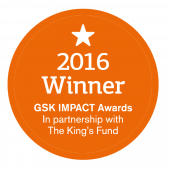Just a bit of fun? or a slow death by irresponsible hedonism? Few subjects divide opinion or create greater controversy than that of recreational drug use. Like it or not, our desire to alter our mental/emotional state has been around for a hell of a long time and doesn’t show any signs of abating anytime in the near future.
In more (comparatively) recent times we’ve seen the rise of the “club drug” phenomenon which seems to be grabbing headlines at the moment. For those of you who think that this is something new, think back to the ecstasy hysteria of the late 1980’s. Tabloid newspapers would have you believe that should you come anywhere within a half mile radius of an ecstasy pill then you would haemorrhage from all your vital organs, fall writhing to the floor then live out the rest of your days as a hopelessly insane gibbering wreck. Looking back even further, the 1960’s saw similarly sensational headlines document the pill popping mods spending their amphetamine fuelled weekends shuttling between clubs & parties (sound familiar?) pausing only now and then to menace a poor unsuspecting deckchair in a seaside town somewhere.
The Gay thing
Us LGBT’ers have been right there in the thick of it ever since we got it together to open our own bars & clubs and to show the rest of the world that when it come to partying we’re taking no prisoners, unless of course it’s by mutual consent and the handcuffs are fur lined! We’ve revelled in giving a perfectly manicured one finger salute to a mainstream society that has by and large rejected us, reviled us and has on many occasions actively persecuted us. The bottom line is, LGBT culture has traditionally been synonymous with counter culture we’ve made our own kind of music, sang our own kind of song, we’ve banged our own drum and shouted out “ I am what I am”. All very rousing & affirming however the rain on our parade seems to be questionable confetti of pills, powders and liquids with terrifyingly long names. More recently that rain seems to have become a deluge and appears to have become ever more destructive. So what has happened? Climate change perhaps? Well, in a sense, yes.
At Antidote, as the only LGBT specific drug & alcohol service in the UK, we’ve witnessed first hand the changes in patterns of drug use amongst LGBT people. In the early noughties most people seeking support were those of us who had perhaps lost some control over our pill popping or cocaine use. Heroin and crack use which has so beleaguered our heterosexual counterparts seemed to have largely passed us by. Speak to most LGBT people about these substances and the general attitude seems largely to be one of indifference and even contempt for those who partake of these “dirty” drugs. Flash forward to roughly about 2010 and you start to see a significant change, Crystal meth starts to make its presence felt, people start to experience more and more problems with G. then even more recently the new kid on the block, mephedrone, makes its debut. Injecting or “Slamming” once the preserve of the “hardcore junkies” of the trainspotting generation, starts to become more common place and the term “chemsex” starts to enter our vocabulary. People who may have been using drugs for years with a relative degree of control suddenly find that they are completely out of control and pushing boundaries far further than they ever imagined or wanted to. Some people who ordinarily wouldn’t have taken drugs at all find themselves in situations, often sexual, where the temptation is too much and they succumb to the allure of apparent porn star style sex marathons.
The issues over why this has happened and what should be done to address it are complex and are the subject of much heated discussion, sensational media reports, research and beard stroking ponderings over a flat white. Generic, mainstream drug and alcohol services have been fairly slow on the uptake but before we start levelling accusations of institutional homophobia or heterosexism or simply not giving a dam it’s worth bearing in mind that the recent development in club drug/legal high use have caught almost everybody on the hop. To be fair even if they had wanted to respond, and I know from many conversations with colleagues in the field that they do, their funding criteria dictates that they focus mainly on crack, heroin and alcohol with abstinence based approaches being the norm.
Taking Steps
Here at Antidote through the dedication of our committed volunteers, the feedback from the many clients who have come to us seeking support and through some great partnerships with some of healthcares finest, we’ve been able to fine tune our approach. We strongly believe in the ability of our clients to make informed choices about their drug or alcohol use. For some this may mean giving up altogether and for others this might mean gaining more control over their use or ensuring that it doesn’t get out of control in the first place. One of the common misconceptions about accessing a service such as ours is that you need to have a “drug problem” and therefore require “treatment”. This immediately throws up the question what is a drug problem? And how do you define it? For sure some people have experienced catastrophic consequences but for others just recognising that drugs and/or alcohol may be playing a bigger part in their life than they would wish could be enough to prompt some action. We get that, and we also understand that traditional approaches and attitudes aren’t always going to be helpful for the people that come to us looking for advice and/or support.
Over the next few weeks I’m going to be sharing some thoughts and reflections based on our experiences here at Antidote as well as some “harm reduction” tips & advice designed to help you if you’re looking for ways to play safer. Of course if you would like to speak to somebody, if you’re worried about your drug or alcohol use or you just have some questions, there are always our drop in’s. You’re very welcome to come in and have a chat with one of the Antidote keyworkers, you don’t need to book an appointment, it’s a safe space, it’s confidential and you won’t be judged.
For details of Antidote services or any other services at London Friend please check our website at https://londonfriend.org.uk/ or call us on 020 7833 1674




